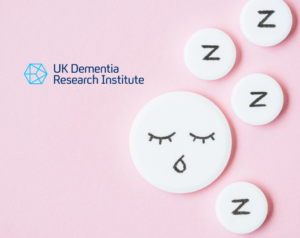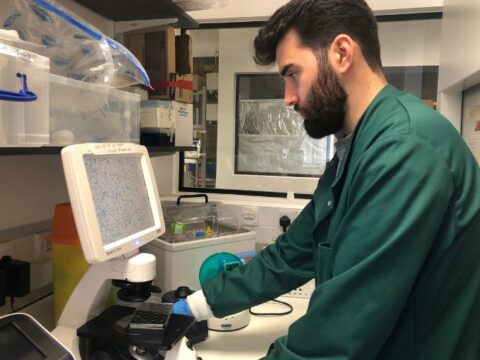
Experiments show that brain clearance is reduced during sleep and anesthesia
The brain’s ability to rid itself of toxins may be reduced during sleep, surprising new research reveals.
Over the past decade, a dominant theory as to why we sleep has been that the brain’s ability to clear toxins improves during sleep, or under anaesthesia.
However, a new study indicates that the opposite may be true. Scientists measured clearance and movement of fluid in the brains of mice, and showed that it was markedly reduced during sleep and anaesthesia.
The research is led by scientists at the UK Dementia Research Institute (UK DRI) at Imperial College London. It is published today in the journal Nature Neuroscience and funded by the UK DRI.
Until now it’s been thought that sleep clears toxins from the brain via the glymphatic system, a mechanism that flushes waste from the brain. But this has never been conclusively confirmed. Previous studies have used indirect means of measuring the flow of fluid through the brain.
In the new study, the researchers used a fluorescent dye to study the brains of mice, seeing how quickly the dye moved from one area of the brain to another, and was cleared from the brain. This enabled them to measure the rate of clearance of the dye from the brain directly.
The study showed that the clearance of the dye was reduced by about 30% in sleeping mice, and 50% in mice that were under anaesthetic, compared with mice that were kept awake.
“The field has been so focused on the clearance idea as one of the key reasons why we sleep, and we were of course very surprised to observe the opposite in our results. We found that the rate of clearance of dye from the brain was significantly reduced in animals that were asleep, or under anaesthetic. As yet, we do not know what it is about these states that slows down the removal of molecules from the brain. The next step in our research will be to try to understand why this occurs.” Study co-leader, Prof Nick Franks, Professor of Biophysics and Anaesthetics, Imperial College London
The size of molecules may affect how quickly they move through the brain, and some compounds are cleared through different systems. Therefore, the extent to which the findings are generalisable is not yet confirmed.
“There are many theories as to why we sleep, and although we have shown that clearing toxins may not be a key reason, it cannot be disputed that sleep is important. Disrupted sleep is a common symptom experienced by people living with dementia, however we still do not know if this is a consequence or a driving factor in the disease progression. It may well be that having good sleep does help to reduce dementia risk for reasons other than clearing toxins. The other side to our study is that we have shown that brain clearance is highly efficient during the waking state. In general, being awake, active and exercising may more efficiently clean the brain of toxins.” Study co-leader Prof Bill Wisden, Interim Centre Director of the UK Dementia Research Institute at Imperial College London
Next, the researchers aim to uncover how sleep reduces the clearance of toxins from the brain in mice, and explore whether their findings are applicable to humans.
About the UK Dementia Research Institute
The UK Dementia Research Institute (UK DRI) is the UK’s leading national biomedical research institute dedicated to changing the outcomes of people living with or at risk of neurodegenerative diseases. Established in 2017 by its principal funder the Medical Research Council, in partnership with Alzheimer’s Society and Alzheimer’s Research UK, the multi-million-pound Institute is hosted across six leading UK universities: UCL, University of Cambridge, Cardiff University, University of Edinburgh, Imperial College London, and King’s College London. The UK DRI is focused on developing new treatments, technologies and diagnostics for people with all types of dementia. www.ukdri.ac.uk

 Print This Post
Print This Post





